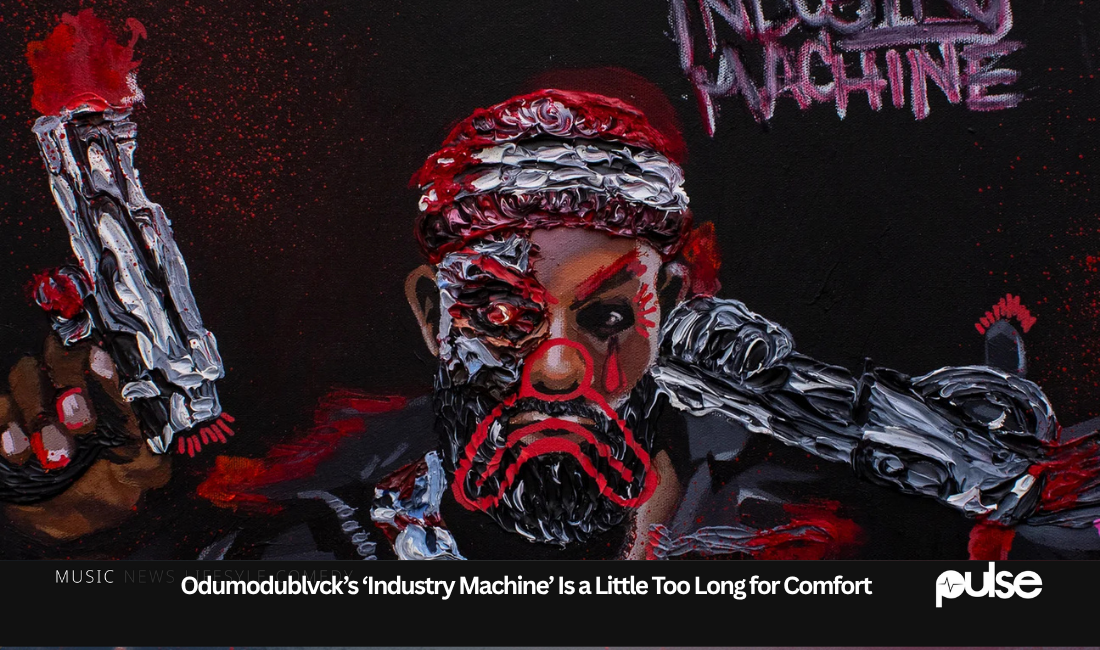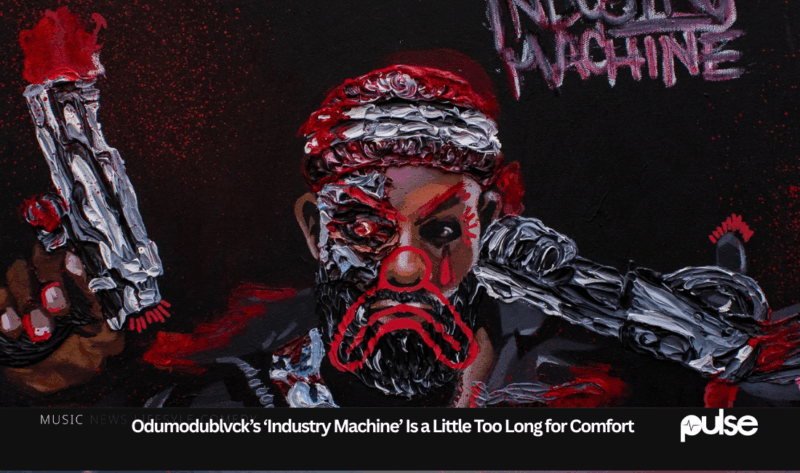
Odumodublvck, to an extent, is a rap purist’s walking nightmare. Since officially debuting in 2022, the Nigerian rapper has often been considered a deviation from the standards set by conventional emcees.
This perception fuels the hostile digital reaction he sometimes receives from fans and gatekeepers who struggle to accept the commercial success his unique rap style has earned him.
Within “Big Kala’s” three-year timeframe of widespread fame, he has achieved commercial strides that propelled him to mainstream success, a feat that eluded many hip-hop icons like M.I Abaga, Olamide, Ice Prince, Phyno, and Reminisce early in their careers. His 2023 record-breaking mixtape, ‘Eziokwu,’ became the most-streamed Nigerian rap project of all time on Spotify, surpassing the previous record held by Olamide’s ‘Carpe Diem.’
The mixtape clearly established Odumodublvck’s commercial appeal and solidified a belief among his die-hard fans that he is the best thing to have happened to hip-hop since the OGs. Some might argue this rhetoric is justified.
While rap thrived in the underground through conceptual flag bearers like Mojo AF, A-Q, and others, the style became niche, appreciated only by enthusiastic fans who delighted in intellectual word-play, intense bars, and explosive storytelling. The average music listener struggled to relate, and this lack of connection signalled a decline in commercial success.
However, the trajectory changed with Odumodublvck’s entry. The Native Records signee brought an X-Factor needed for mass-market connectivity. His rap style was a deviation from the norm: an overtly aggressive vocal delivery accompanied by simple lyricism, faint falsettos, and irresistible earworm melodies, the latter being his most potent attribute.
So far, Odumodublvck has successfully channelled his repertoire, transforming from the front man of the Abuja-based Anti World Gangstars rap crew into one of the most commercially successful rappers in the modern-day Nigerian music scene.
But even success is not enough; Odumodublvck seeks respect. He demands it from fans and peers alike, sometimes overtly and at other times, subtly.
Technically, ‘Industry Machine’ is Odumodublvck’s debut album, given that his previously recognised bodies of work (‘The Machine is Coming’ and ‘Eziokwu’) were labelled as mixtapes.
The album signifies the rapper’s intention to be taken seriously by music stakeholders and consumers alike. Central to Odumodublvck’s artistry is the protagonist versus antagonist narrative, with him adopting the protagonist role against naysayers who harbour disdain for his success or simply consider him lucky. As expected, ‘Industry Machine’ embodies this narrative.
The highly anticipated twenty-three-track album was released under licensing rights to Kalacious Entertainment/Native Records and Def Jam Recordings.
Odumodublvck recruits twenty-two artists for the project, featuring big names from home and abroad, including Wizkid, Saweetie, Davido, Cash Cobain, Zlatan Ibile, Stormzy, Skepta, Phyno, Tobe Nwigwe, Patoranking, Modenine, and Chike, to name a few. Unfortunately, even the extensive list of collaborators cannot entirely mask the perceived lack of careful curation.
Preceding ‘Industry Machine,’ Odumodublvck had already teased fans with the 2025 sixteen-track mixtape ‘The Machine is Coming.’
A preliminary mixtape, even if intended as a teaser, should ideally avoid being too long, as it risks jeopardising the listener’s attention through oversaturation. Odumodublvck made this oversight on the mixtape, and he repeats this costly error on ‘Industry Machine.’
This flaw becomes apparent as the album sequence progresses: a sense of repetitiveness begins to surface, which even the album’s nuanced music production and numerous guests cannot entirely redeem.
One thing becomes clear: his current range and style are too streamlined for a twenty-three-track opus, often leading to a fatigued sonic experience.
‘Banza Boy’ is a hybrid of chest-thumping and love-making, where Odumodublvck struggles to stay consistent with his central theme; nevertheless, the hook saves the track.
By Sijibomi Anifowose








